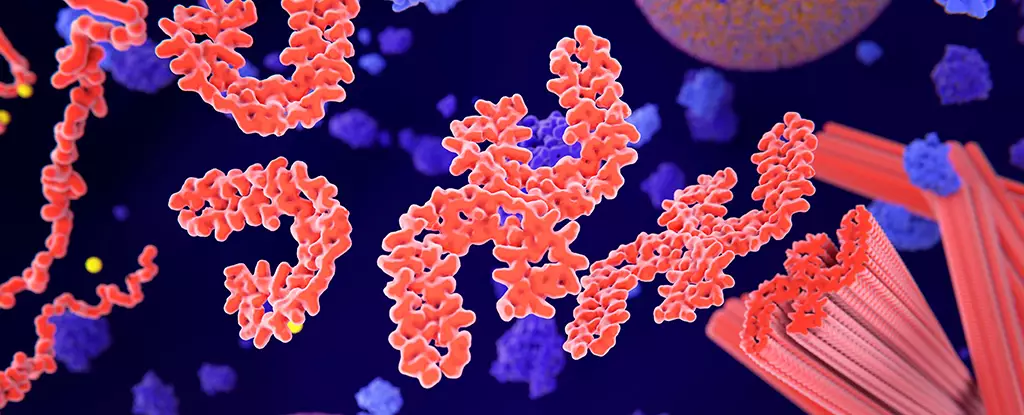Alzheimer’s disease is arguably one of the most devastating neurodegenerative disorders known, robbing countless individuals of their memories and autonomy. The hallmark features of this disease are the peculiar clumps and tangles that disrupt neuronal communication, leading to irreversible brain damage. Current therapies largely aim to alleviate symptoms rather than tackle the underlying causes, which emphasizes the critical need for more innovative approaches. With brain health being a delicate balance, any potential treatments must navigate a complex landscape of proteins and cellular interactions.
Introducing RI-AG03: A Promising New Drug
A new drug entering the research spotlight is RI-AG03, a peptide inhibitor engineered to inhibit problematic interactions within tau proteins. Research indicates that tau proteins, while generally beneficial for neuronal stability, can become pathogenic under certain conditions. The innovative design of RI-AG03 allows it to target two specific regions of tau proteins—often referred to as ‘hotspots’—where aggregation and subsequent fibril formation occur. This dual mechanism of action enhances potential therapeutic efficacy by addressing the fundamental processes that lead to neuronal deterioration.
During preliminary trials conducted on fruit flies and human cells, RI-AG03 has shown remarkable results. In fruit flies, the lifespan extension reached up to 35%, signifying a substantial reduction in neuron degeneration, a key feature of Alzheimer’s pathology. Such remarkable outcomes suggest that the drug is not merely a theoretical construct but may represent a tangible advancement in the fight against dementia.
The mechanism by which RI-AG03 operates is intricately tied to the structural dynamics of the tau protein itself. Neuroscientist Amritpal Mudher explains that the two targeted regions behave like zippers; their interaction leads to the formation of long, twisted fibrils that are detrimental to neuron function. In addressing these specific regions, RI-AG03 could significantly derail the destabilization processes associated with tau aggregation.
Moreover, the research indicates that this approach may help maintain the physiological roles of healthy tau proteins. Before advancing into extensive clinical applications, the researchers anticipate conducting tests on murine models, a necessary step to assess the efficacy and safety of RI-AG03 in a more complex biological system before human trials can commence.
One striking advantage of RI-AG03 is its specificity. Current aggregating inhibitors often fail due to unintended interactions with various proteins, causing side effects that can deter the overall viability of proposed treatments. In contrast, RI-AG03 is meticulously designed, aiming to minimize collateral damage within the brain’s intricate ecosystem. As neuroscientist Anthony Aggidis states, its design against specifically the tau protein makes it a targeted approach—this elevated degree of precision could redefine how neurodegenerative diseases are treated.
While past tau-based therapies have shown optimism in animal studies, many have faltered during human trials. This has frequently resulted from the complexity of human neurobiology. However, the international research team breathes new hope into this area by indicating that RI-AG03 could be the algorithmic breakthrough the scientific community has been seeking.
Despite the positive preliminary results, there remains a considerable journey ahead in the entire drug development process. The transition from bench research to bedside therapy involves a series of rigorous testing phases. Clinical trials will be crucial in determining the real-world applicability and safety profile of RI-AG03.
In essence, the hope imbued in RI-AG03 represents not merely a potential treatment but a paradigm shift in how researchers visualize tackling Alzheimer’s disease. By targeting specific pathways of tau aggregation, RI-AG03 may set new standards in drug development, underscoring a move toward personalized and precision medicine in neurodegenerative conditions.
While the road to effective Alzheimer’s treatment remains fraught with challenges, advancements like RI-AG03 represent significant steps forward in understanding and combating the complexities of this disease. As research progresses, we may soon unlock more effective strategies to stave off the relentless progression of Alzheimer’s and improve the quality of life for those affected.


Leave a Reply